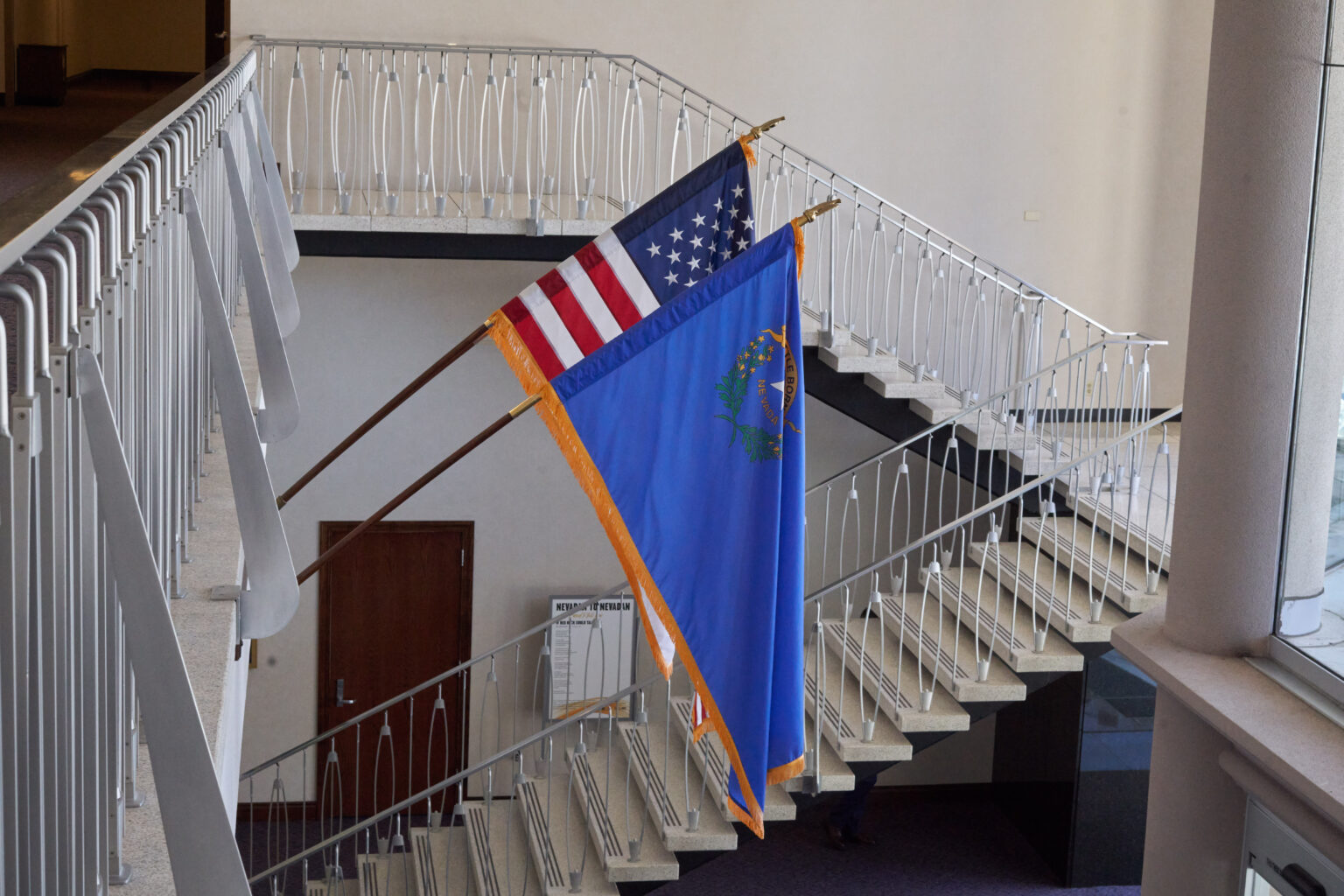5:00
News Story
Lawmakers gear up for busy legislative sessions in 2024. Except in Nevada.
Artificial intelligence, abortion rights, workforce shortages in health, education, and corrections, health care costs, climate impacts and energy policy, digital privacy, mental health services, gun laws, gender expression, criminal justice, confronting the impact of expired pandemic-era safety nets, taxing and spending – those are only some of the issues state legislatures across the nation will be tackling in 2024.
But not in Nevada.
It’s not that those and other issues aren’t important or urgent to Nevadans.
It’s that Nevada’s legislature isn’t scheduled to meet this year.
Under the Nevada Constitution, the Nevada State Legislature is scheduled to meet only every other year, in odd years. Nevada is one of only four states where legislators don’t meet every year, the others being North Dakota, Montana, and Texas.
There have been attempts to amend Nevada’s Constitution to allow annual legislative sessions. In 2013, Tick Segerblom, then a state senator and now a Clark County commissioner, introduced a resolution that would have allowed voters to determine if the legislature should meet every year.
That resolution passed both houses in 2013. But amendments to the constitution must be approved by legislators in two consecutive sessions to get a spot on the ballot, and lawmakers declined to pass the resolution again in 2015.
Segerblom and other lawmakers, including then-senator and now state Attorney General Aaron Ford, tried again in 2017. The resolution for an amendment allowing annual sessions passed the state senate, but died without a hearing in the state assembly.
‘Considerably weaker than the executive branch’
Nevada lawmakers still get legislative work during the years the legislature doesn’t meet, via study committees, or more consequentially, interim standing committees. One recent example of the latter happened last month when the Interim Finance Committee deferred a vote to approve funding to provide additional raises for Clark County School District’s lowest paid employees, unless the district also presented its plans to give raises for licensed educators. The school district howled, but within a week it settled a dispute with the teachers union and approved raises for teachers.
But interim committees can’t amend laws or pass new ones. And when legislators were meeting in the first half of 2023, Gov. Joe Lombardo unsuccessfully tried to further curb what little authority legislators have during the interim, a proposal that would have made Nevada’s executive branch even more powerful.
One of the arguments Segerblom has made when calling for annual sessions is that in Nevada the executive branch is already too powerful.
“All Nevadans deserve a Legislature that is responsive and provides timely solutions to tough issues and one that is not considerably weaker than the Executive Branch,” Segerblom said while unsuccessfully pushing for annual sessions in 2017.
“For too long,” Segerblom continued, “other forces have worked to curb the powers and authorities of the Legislature—which I think is the people’s branch of government and the one designed and intended to be the most accessible to the people.”
In the mid 20th century most states where legislatures weren’t already meeting annually began choosing to do so.
Annual sessions were proposed in Nevada during those decades as well, but none of the proposals stuck, and the efforts this century have met with predictable opposition from those who, in keeping with Nevada’s traditional image, assume the less legislators meet, the better.
Segerblom acknowledged that sentiment more than a decade ago. Among the most recent states to switch to annual sessions was Oregon in 2010. “That they were able to pass this thing in this day and age is amazing,” Segerblom told the Review-Journal in 2012 after visiting with Oregon officials about annual sessions.
Will they have the special?
While Nevada lawmakers only meet for regularly scheduled sessions every other year, they do periodically meet in full for “special” legislative sessions, which can be called by the governor, or by petition of two-thirds of members of each house. Every Nevada special session has been called by the governor.
In addition to the customary special sessions that are tacked on to the end of nearly every regular session to finish the state’s budget, there have been five special sessions over the last decade.
Two of them were called during the pandemic in the summer of 2020, the first to approve massive budget cuts and implement furloughs for state workers, and the second to approve a series of measures that attempted to address impacts of the pandemic.
The other three were called in order to provide state financial incentives and/or subsidies – for Tesla in 2014, to build the NFL a stadium in 2016, and to build a Major League Baseball stadium in 2023.
This year, the Nevada State Legislature is not expected to address AI, workforce shortages, health care costs or other issues that lawmakers in other states will be grappling with in 2024.
But it’s possible Nevada legislators still could meet in a special session in 2024.
One initiative that failed to pass during the 2023 regular legislative session proposed awarding the film industry $5 billion in tax breaks over 25 years.
“The State of Nevada continues to explore economic development opportunities associated with the expansion of the film tax credit program,” reads a release last month from a prominent Nevada lobbyist on behalf of one of the companies spearheading the proposal.
The release quotes state Sen. Roberta Lange, who sponsored the film tax break bill. “I look forward to working with Governor Lombardo, my legislative colleagues, and business and education leaders to pick up where we left off,” Lange said.
Our stories may be republished online or in print under Creative Commons license CC BY-NC-ND 4.0. We ask that you edit only for style or to shorten, provide proper attribution and link to our website. AP and Getty images may not be republished. Please see our republishing guidelines for use of any other photos and graphics.




